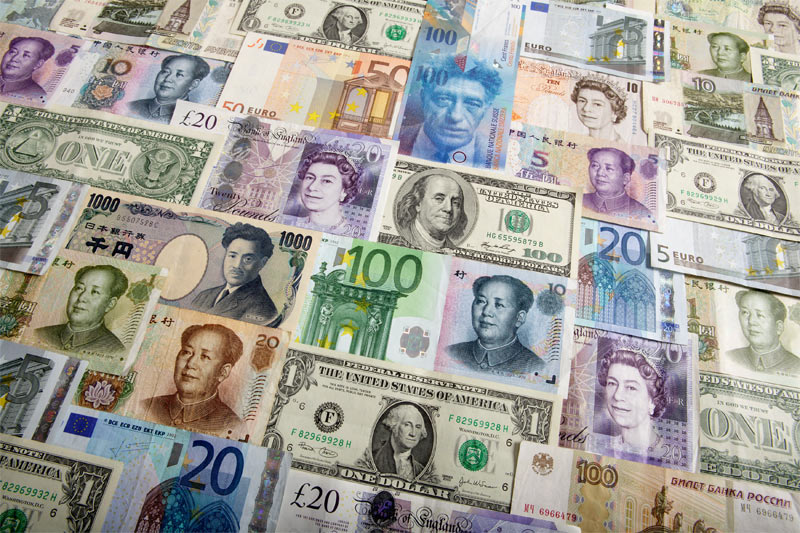Investing.com - The U.S. dollar was close to 20-month highs against the weaker yen on Monday and was trading in tight ranges against the other major currencies as uncertainty over the U.S. fiscal cliff hit market sentiment.
During European afternoon trade, the dollar was close to a 20-month peak against the yen, with USD/JPY up 0.38% to 83.84.
The yen weakened broadly after a victory for Japan’s Liberal Democratic Party in elections on Sunday fuelled expectations for more aggressive easing steps by the Bank of Japan.
The LDP and its coalition partner secured a two-thirds majority in Sunday’s election, which will allow the new government to override the upper house and easily pass its policies.
LDP leader Shinzo Abe has called for unlimited easing by the BoJ in order to meet the bank’s 2% inflation target and spur growth in the recession hit economy.
Investor focus turned to the upcoming BoJ policy meeting on Thursday, amid expectations that the central bank will implement further easing measures.
The greenback was little changed against the euro, with EUR/USD dipping 0.01% to 1.3160.
Investors remained cautious amid concerns over the U.S. fiscal cliff, approximately USD600 billion of automatic tax hikes and spending cuts due to take effect on January 1 that threaten to derail the U.S. recovery, if lawmakers cannot reach an agreement.
The greenback slid to a two-and-a-half month low against the pound, with GBP/USD up 0.21% to 1.6204 and was little changed against the Swiss franc, with USD/CHF inching up 0.03% to 0.9180.
The greenback was broadly higher against its Canadian, Australian and New Zealand counterparts, with USD/CAD dipping 0.07% to 0.9850, AUD/USD down 0.24% to 1.0541 and NZD/USD losing 0.31% to trade at 0.8436.
The dollar index, which tracks the performance of the greenback versus a basket of six other major currencies, edged down 0.03% to 79.63.
The greenback showed little reaction after a report showed that the Empire State business conditions index declined to minus 8.1 in December from a reading of minus 5.2 the previous month, compared to expectations for a reading of minus 1.
Later Monday, European Central Bank President Mario Draghi was to appear before the European Parliament’s Committee on Economic and Monetary Affairs to discuss the economy.
During European afternoon trade, the dollar was close to a 20-month peak against the yen, with USD/JPY up 0.38% to 83.84.
The yen weakened broadly after a victory for Japan’s Liberal Democratic Party in elections on Sunday fuelled expectations for more aggressive easing steps by the Bank of Japan.
The LDP and its coalition partner secured a two-thirds majority in Sunday’s election, which will allow the new government to override the upper house and easily pass its policies.
LDP leader Shinzo Abe has called for unlimited easing by the BoJ in order to meet the bank’s 2% inflation target and spur growth in the recession hit economy.
Investor focus turned to the upcoming BoJ policy meeting on Thursday, amid expectations that the central bank will implement further easing measures.
The greenback was little changed against the euro, with EUR/USD dipping 0.01% to 1.3160.
Investors remained cautious amid concerns over the U.S. fiscal cliff, approximately USD600 billion of automatic tax hikes and spending cuts due to take effect on January 1 that threaten to derail the U.S. recovery, if lawmakers cannot reach an agreement.
The greenback slid to a two-and-a-half month low against the pound, with GBP/USD up 0.21% to 1.6204 and was little changed against the Swiss franc, with USD/CHF inching up 0.03% to 0.9180.
The greenback was broadly higher against its Canadian, Australian and New Zealand counterparts, with USD/CAD dipping 0.07% to 0.9850, AUD/USD down 0.24% to 1.0541 and NZD/USD losing 0.31% to trade at 0.8436.
The dollar index, which tracks the performance of the greenback versus a basket of six other major currencies, edged down 0.03% to 79.63.
The greenback showed little reaction after a report showed that the Empire State business conditions index declined to minus 8.1 in December from a reading of minus 5.2 the previous month, compared to expectations for a reading of minus 1.
Later Monday, European Central Bank President Mario Draghi was to appear before the European Parliament’s Committee on Economic and Monetary Affairs to discuss the economy.
